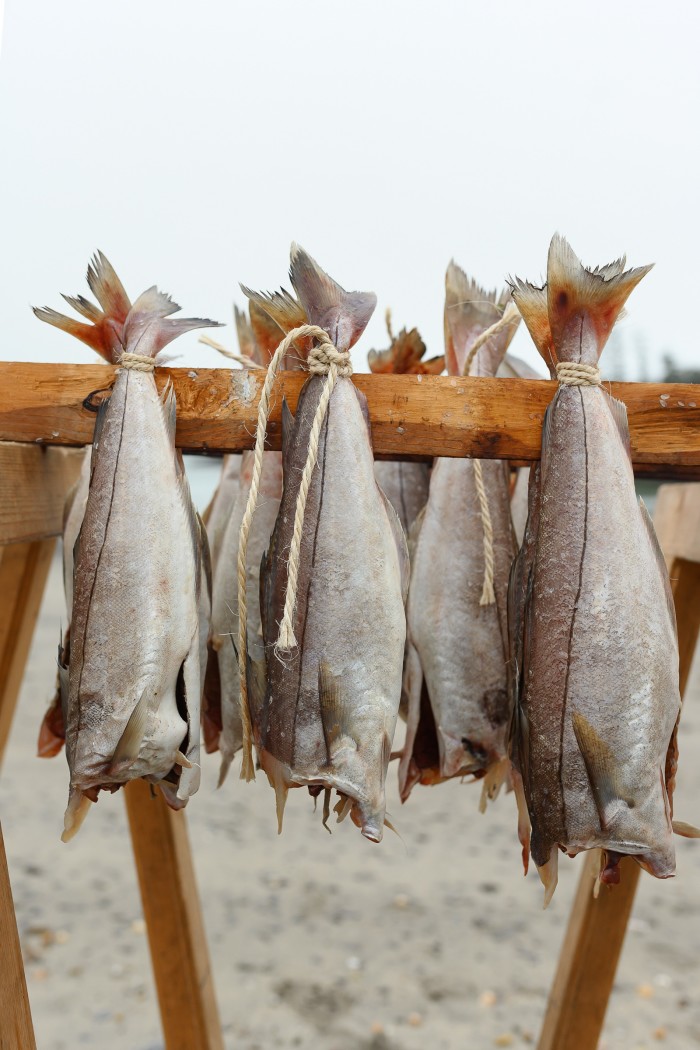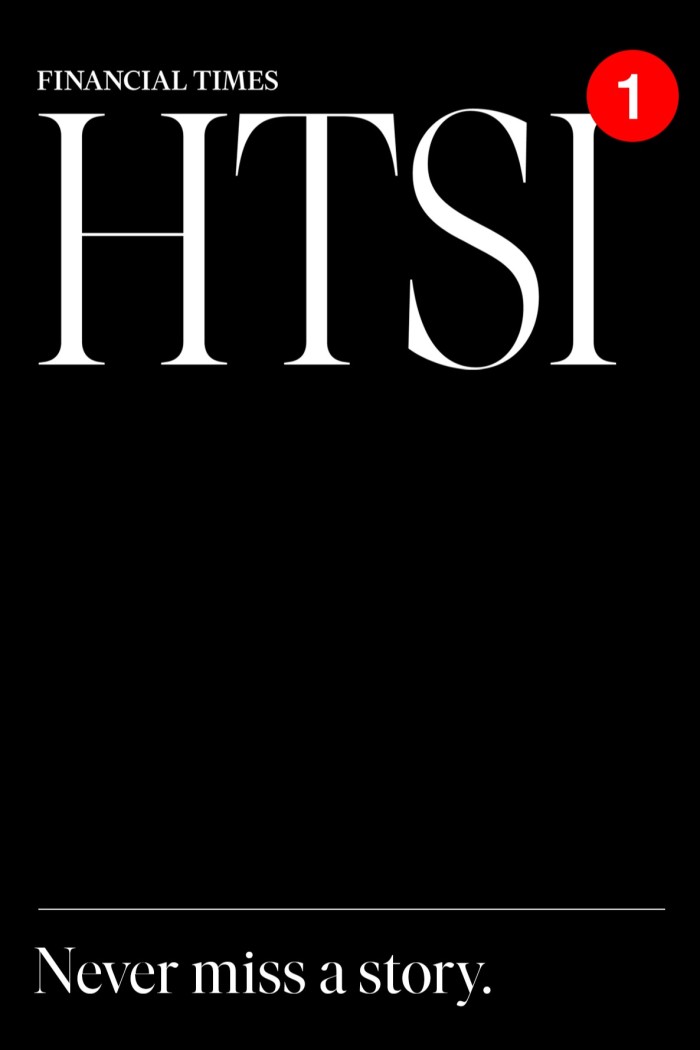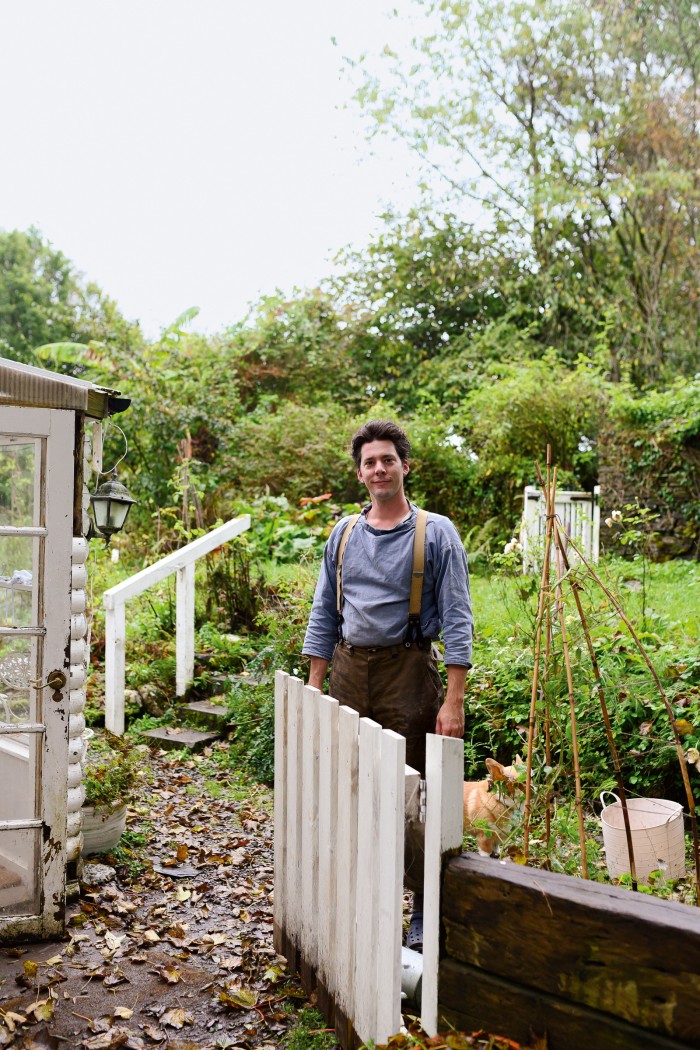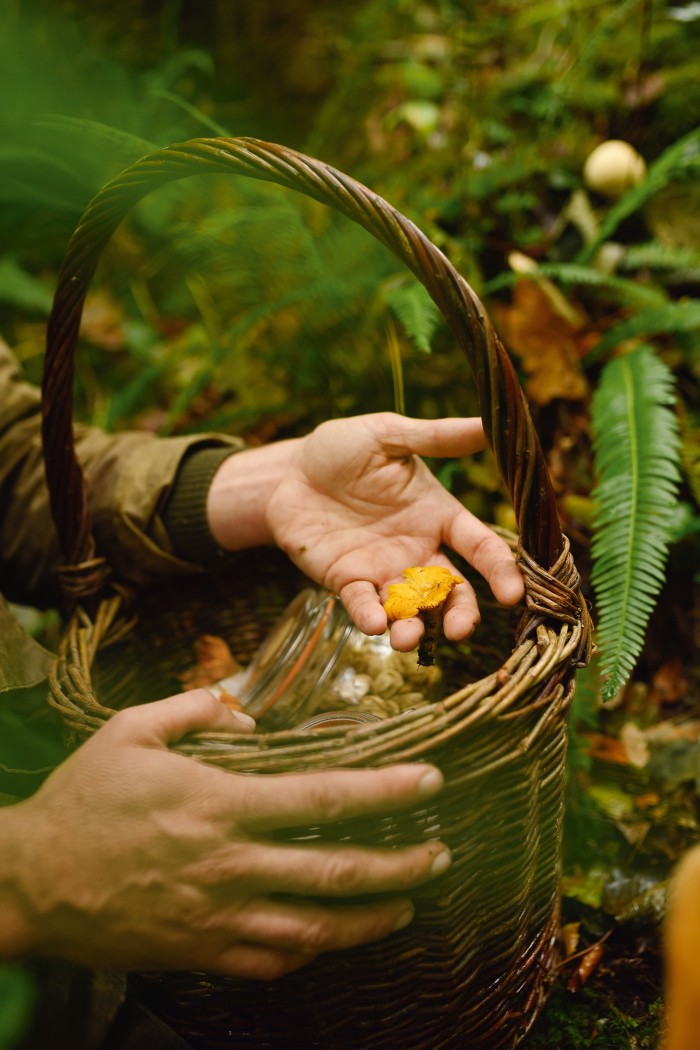Max Jones and the call of the culinary wild

Roula Khalaf, Editor of the FT, selects her favourite stories in this weekly newsletter.
Have we lost something important in our day-to-day lives? Is there an uncomfortable feeling that our way of living is at odds with what we instinctively know to be right? While we all want our modern comforts, many of us would also like to reconnect with the first principles of food production and consumption: seasonal, local and sustainable. But too often this never gets further than buying a loaf of sourdough.
Then there is Max Jones. Living in and working from a small West Cork village in Ireland, he is bringing expression to this innate desire to rediscover food in its simplest form. Jones wants to harness the value of our advancements while preserving and reintroducing the traditional and low-impact methods of food production and ways of living. This is not an exercise in romantic nostalgia, rather a practical application of valuable skills that are being lost in our rush to convenience.

It’s about “reawakening these abilities that are intrinsic to us all to carve a better future for our food by honouring techniques of the past”, as he puts it. Now 38, he is an educator in food traditions and methods and also a writer, photographer and food producer.
Although Jones was brought up in his father’s home of Birmingham, he spent much of his childhood in Biella in the foothills of the Italian Alps, his mother’s childhood home. His parents met when his father was posted there as an English teacher. Jones spent summers and holidays in this rural idyll where he was afforded a somewhat feral life. He wandered the mountains around Biella taking bread and cheese in his pocket, just as the herdsmen did, so he wouldn’t have to descend the mountain for home until the end of the day. As he explains: “Watching the herders using their animals to turn the landscape into milk, then by using acidity and desiccation make food that you can then take with you off the mountain and eat when the land is not producing. Preserving – that’s what it is all about.”


As a young adult, he went to London to become a musician. To pay the rent he worked as a cheesemonger at Mons at Borough Market. There, he was drawn into the lives of the cheesemakers, their vocational connection to their landscape and the food it and they produced. “They were in these amazing places with no electricity, no running water, and I realised it wasn’t just the cheese they were making,” he says of the remote artisan producers that captivated him. Their whole lives were rigged to survive.
This curiosity brought him to the legendary Sally Barnes of the Woodcock Smokery, Gortbrack, in West Cork. Sally has been preserving only wild, non-farmed, natural fish since 1979. Having worked with Barnes in her smokery, Jones later returned to help keep her knowledge alive by designing and building “The Keep”, a learning space for Sally to teach her method and impart the ethics of a true artisanal existence.
Since then, he has been working towards sharing his love for cheesemaking, bound with the alpine tradition of transhumance in the Biellese mountains: trans (across) humus (land), the seasonal movement of livestock. “They shake up your soul and should be experienced at least once in a lifetime,” he says.


He has built spaces in both Italy (the Rustico) and Ireland (the Booley), helping new food producers harness old methods: he organises a transhumance trip in Italy every year. “It is an ancient tradition to move with the herd at the beginning of summer to upland pasture, taking advantage of nature’s abundance at that time of year.”

Want to read HTSI before everyone else? Get all the top stories straight to your inbox every Friday. Sign up to our free weekly newsletter here
In Ireland, this tradition is called booleying, taken from the Irish buaile, meaning livestock enclosure or summer milking place. Jones has recreated his own booley, near the village of Leap in West Cork, renovating a shed on a wooded hillside by the Blackwater estuary, once part of an old seminary. With no running water and no electricity (just the way it should be), he hosts tastings, talks and workshops to teach people both the traditions of the land – making raw-milk cheese and butter – and those of the sea.
We are sitting in the Booley with the fire burning and the lanterns lit, and Jones offers me an amaro he made himself, with leaves and roots of plants foraged around the Booley, plus some gentian root tincture given to him by a herder in Biella. It’s bitter but not too bitter and there is a beautiful smoothness to it. He explains that when he is teaching he encourages people to learn with the senses. This way you don’t have to have the piece of paper to make the brine for the smoked fish, for example, you just keep adding salt until it starts to bob in the water; and you know when it has dried by the touch of your hand.



The next evening, we go to the beach to smoke the fish he has prepared. He allows it to dry a little more in the wind. Then he places it in the smoker that he has just built in the sand and lays some wet hessian on top. The smoke begins to rise. “The smoke shows us the wind,” he says. “We can only see the wind when it blows the smoke – it’s such a beautiful thing.”
West Cork is now home for Jones and his Irish partner, Reídín Beattie, owner of Daughters of Flowers, a natural skincare company, with whom he has a daughter, Beatrix, now 18 months old. In a local village, Jones has established a simple community smoker on market day to encourage local people to re-engage with their forgotten traditions by smoking their own food or food they buy at the market.
Max Jones is a pragmatic idealist devoted to bringing the traditional skills of food production to a younger generation. Through his advocacy, education and workshops in Ireland and Italy he may well awaken skills innate within us all.
Comments